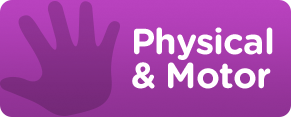Seven is a great age, when your child is becoming independent and has moved beyond the mood swings and inconsolability of earlier years. Peers are becoming more important, but still don’t rule children’s frame of mind as they will in a few years.
Here are some typical milestones you may see in your seven-year-old:

Language & Cognitive Development
- Begins using logic to solve problems
- Reads aloud fluently and with expression but still enjoys being read to
- Writes in complete sentences using capitalization, some punctuation and the correct spelling of common words
- Uses a ruler, thermometer and scale to make accurate measurements
- Sloves word problems using secure knowledge of addition and subtracion facts
- Has a solid sense of time (seconds, minutes, days, etc.) and may enjoy planning their day
- Identifies common two- and three-dimensional geometric shapes and understands their symmetry
- Knows the value of different coins and how they add and subtract

Physical & Motor Development
- Refines hand-eye coordination
- Preoccupied with teeth (and loosing them)
- Remembers and performs brief dance routines or sequences of hand movements
- Effectively combines motor skills like running while dribbling a basketball or jumping and spinning

Social & Emotional Development
- Has overcome some fears from earlier age but may still be scared of the unknown
- Plays with both boys and girls but probably has a best friend of the same gender
- Enjoys dramatic play (dress-up, make-believe, pretend play)
- Blames others or “tattles” on their mistakes
- Uses language to express feelings
- Has trouble getting along with siblings
- Aware of and is sensitive to the feelings of others
- Works cooperatively with a partner at school
- Follows directions and is usually able to control self in public
Remember your child is a wonderful, unique individual and may not exhibit every one of these milestones. A wide range of behaviors is considered normal and some children will demonstrate certain abilities earlier or later than this schedule. Should you have any concerns about your child’s progress, please ask your pediatrician or family physician.






